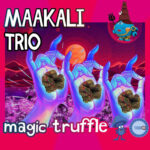The arduous journey of The Fellowship displayed the lush vegetation, striking rock formations and talking trees (hee hee!) that Kiwis are lucky enough to enjoy.
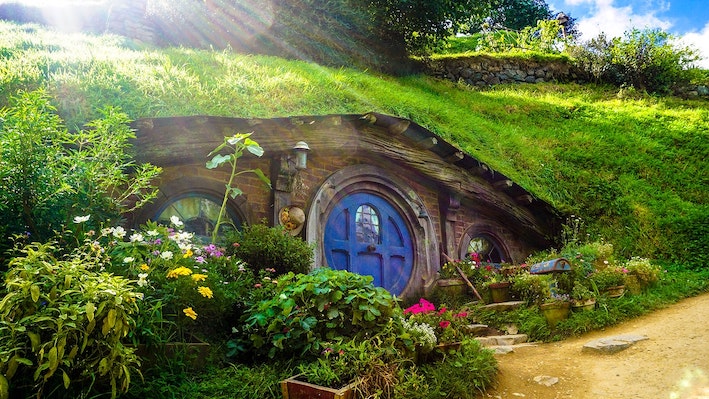
Lord of the Rings has a special place in many a shroom-fan’s heart. Watching the trilogy while tripping is a cult-fave pastime for those who like to experience the greatest adventure… from the safety of their couch. Additionally, the hobbits’ affinity for nature and love of mischief is pretty kindred with the ethos of the psychedelic community too.
But, Middle-earth fetish aside, what is shroom-culture like in the REAL New Zealand?
Magic Mushrooms in New Zealand
Well, first of all, 8 species of psychedelic mushroom are known to grow wild in New Zealand. And, we ship our products there. So y’know, the Kiwi’s have access. And thank goodness, because what could be better than cloud-gazing in a country whose indigenous Maori name ‘Aotearoa’ translates to The Land of the Long White Cloud — whilst tripping on a healthy dose of nature’s finest?
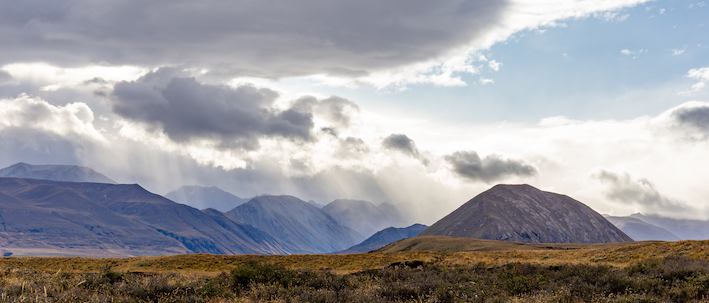
The Legislation Situation in NZ
But, what’s the legislation situation?
Well, as in many places, psychedelics such as magic mushrooms, LSD, DMT, etc. are a Class A drug, a hangover from the draconian drug laws that came into play in the 1970’s. However, growing interest in the medical benefits of these same substances is triggering change, with psychedelic studies becoming more common.
For example, The University of Auckland recently concluded a placebo controlled LSD study. In this study the researchers aim to measure the potential creativity enhancing qualities of the psychedelic — something notoriously difficult to do. The study goes thusly: participants are given a microdose of LSD (or a placebo) and are then free to go about their day as usual. They take daily questionnaires and regular laboratory tests from which the researchers assess their creativity, mood, focus and cognition. Creativity specifically is assessed with word tasks.
Researcher Dr Suresh Muthukumaraswamy and PhD student Robin Murphy predict in their study protocol that psychedelics may induce “hyper-associative states”.
‘A Political No-Brainer’
That these studies are taking place is a positive sign. However, the aforementioned Dr. Muthukumaraswamy, at the forefront of psychedelic research in NZ, feels that the government is not taking the chances offered to it, in terms of psychedelic trials.
“This should be a political no-brainer. There’s benefit to patients, there’s benefit to the economy. There’s benefits to infrastructure and development but no one is taking the lead on it. Because we’re stuck in a backwards way of thinking about drugs and drug policy.”
He worries that companies who are investing in psychedelic research, such as ATAI Life Sciences will pass them by, for example, to their nearby cousin Australia.
“They’re going to look for places to run trials. They’re going to look at Australia and say ‘let’s go there’. It’s a bold and really smart move. In a couple of years time it will be a base whereas little old New Zealand is letting it pass by.”
Letting this opportunity pass would be a shame. Currently, New Zealand has one of the highest youth suicide rates of a OECD country. A push towards alternative treatments is essential.
A Growing Magic Mushroom Community
And, it’s not just the scientific community that are keen to push forward with psychedelic legislation changes. There is a burgeoning magic mushroom community who are speaking out. And some of the most vocal members are a brother and sister duo from Wellington. Michaela and Zach Cotogni are key players in the NZ mushroom community and the authors of the book Blue Honey.
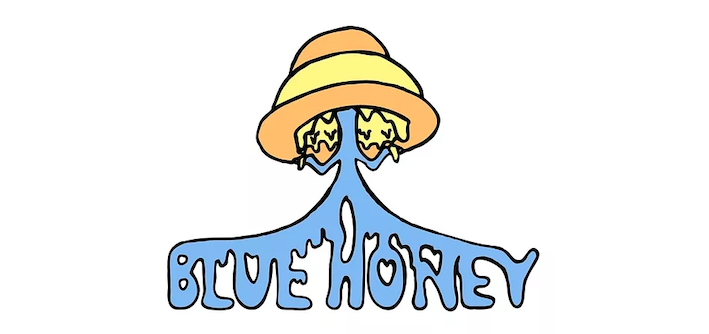
The book contains the real accounts of New Zealanders who have been using psilocybin as a healing tool. Fittingly, both siblings have been on their own journeys of healing via psilocybin — although for different reasons.
Zach and Michaela Share Their Stories
Zach (32) had grown up feeling like an outsider. At a young age he threw himself into drug and alcohol abuse, as a way of self medicating. On their website, he states;
“The abuse and addictions brought on heavy paranoia and drug psychosis which ended up ruling my everyday life.
Alcohol would dampen these emotions (or so I thought) but would really just turn me into an over confident, angry and unstable human being – where I would end up projecting my insecurities and pain onto my family, partners, friends or even complete strangers.”
Today, he is 5 years sober, and credits psilocybin mushrooms with this accomplishment. He acknowledges without this intervention today he would likely be without his wife, his son and possibly even his life.
Human Experience is Key
Michaela (26) has a similar suspicion. Suffering from treatment-resistant mental illness, she had nearly reached ‘…the end of her road’ many times. She was on a cocktail of medications for her depression, PTSD, suicidal ideation and anxiety. She also suffered from suicidal cluster headaches — unbearable migraines that beat her further into despair.
Zach, a few steps further down the healing path, introduced her to magic mushrooms. (Or Mushrooms Containing Psilocybin (MCPs) as they refer to them on their website.)
Immediately her migraines began to subside, and the symptoms of her other conditions began to diminish. She even returned to therapy. Michaela has even gone as far to make her medical records available with the book. This means people going through similar experiences can compare them, and not feel so isolated.
People like the Cotogni siblings are key to pushing forward legislation changes in New Zealand. Like everywhere else, community and human experience are key.
Mushrooms in the Artistic Community
And shrooms are beginning to sink their myceliumy fingers into every corner of the culture. Recently, renowned Christchurch street artist Jacob Yikes unveiled a series of paintings that portrayed a ‘mystical experience beyond words’ inspired by a recent magic mushroom trip. The artist enthused;
“It was one of the most important experiences of my life…I am not a religious person, but I am a more spiritual person now.”
“It was a mystical experience beyond words. I lack the words to explain it, so painting it was the only way to express what I went through.”
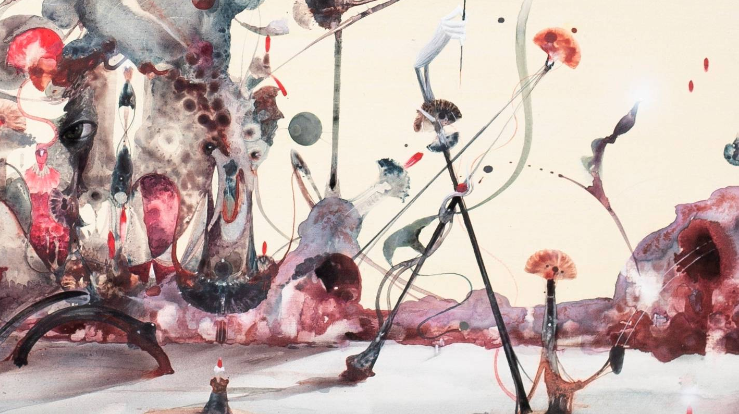
Like Zach and Michaela, Jacob initially started taking shrooms for his mental health, before they began to inspire his paintings — which have been compared to Hieronymous Bosch and Salvador Dali’s trippy works.
Coming Together to Make Change
So there you have it — a burgeoning shroom movement is bubbling down in New Zealand. As we have seen in America, where psychedelic legislations are evolving everyday, it takes a banding together of all areas of the community to make progress. With the scientific, creative and business communities coming together, as well as grass-roots, personal campaigns such as that of Michaela and Zach, the powers that be will have to sit up and take notice. Rather like that merry fellowship of hobbits, elves, dwarfs and humans that Kiwis are probably sick of hearing about, working together will surely lead to the changes they want to see.



